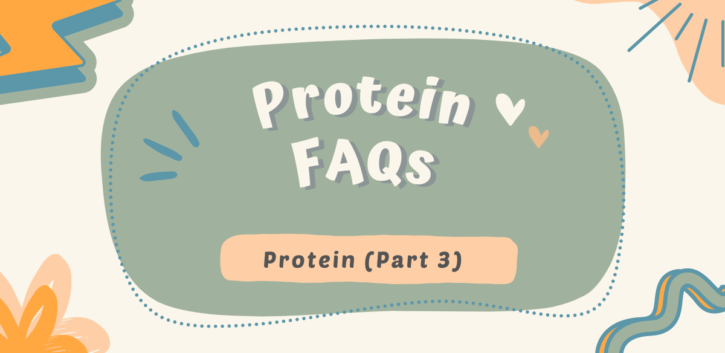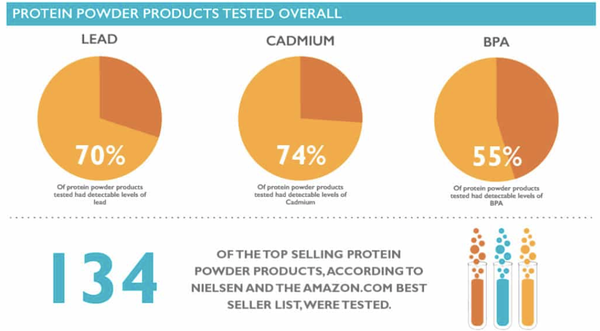Image from Clean Label Project.
Protein FAQ’s
What should I look for in a protein powder?
One of the problems I find most in protein powders is the added sugars, artificial sweeteners and heavy metals. According to Clean Label Project, heavy metals are definitely a big concern.
It’s why I would not just buy my powders from Walmart or amazon based on price. If it’s not in the budget to buy a good quality one, I would spend your money on real food sources of protein- eggs, meat, etc. Look for a brand that you know does independent third-party testing or where you trust the company’s ethics entirely.
Do I need a protein powder?
It depends. If you are having a hard time getting to your protein needs with just food, then a powder is a great way to supplement what you’re already doing.
If you would like little ways to boost the protein value of the foods you’re eating- such as adding in a scoop to yogurt, oatmeal, smoothies, etc., then a protein powder is a great solution.
If you are training hard, and lifting heavy weights, a good protein powder, because of the amino acids in a good whey protein, is a great idea.
However, if a quality powder is not in the budget right now, or you’re feeling fine without it, don’t stress!
Do you have any you recommend?
My favorite protein powders right now are:
Vital Proteins unflavored collagen (not a complete protein, but still a good source of protein and beneficial for other reasons). I use this in pancakes, oatmeal, muffins, coffee, etc.
Onnit brand grass-fed whey protein powder – Whey powder is the most researched protein powder, and contains the highest percentage of branched chain amino acids- great for muscle recovery. We are currently using the chocolate in our house and are happy with it!
Plant Proteins: Can I get enough protein as a vegetarian?
With a well planned diet, yet. However, it takes very thorough planning. I would also encourage you work with a specialist one-on-one to make sure things like your omega 3’s are in the right balance, that you’re micronutrients (vitamins & minerals) are the right levels, and make sure you’re taking time to plan out your protein.
If you’re eating a vegetarian diet because of environmental concerns, I highly recommend watching the documentary or reading the book from Diana Rodgers called, “The Sacred Cow.”
What’s the best plant protein powder?
Truvia Plant Protein or Nutiva are both companies that have passed Consumer Reports testing for heavy metals, and clients of mine report enjoying the taste.
I hope this is helpful. If you have more questions, please comment below! Don’t forget to join my email list for my weekly emails, tips and more!


1 thought on “Protein FAQ’s”